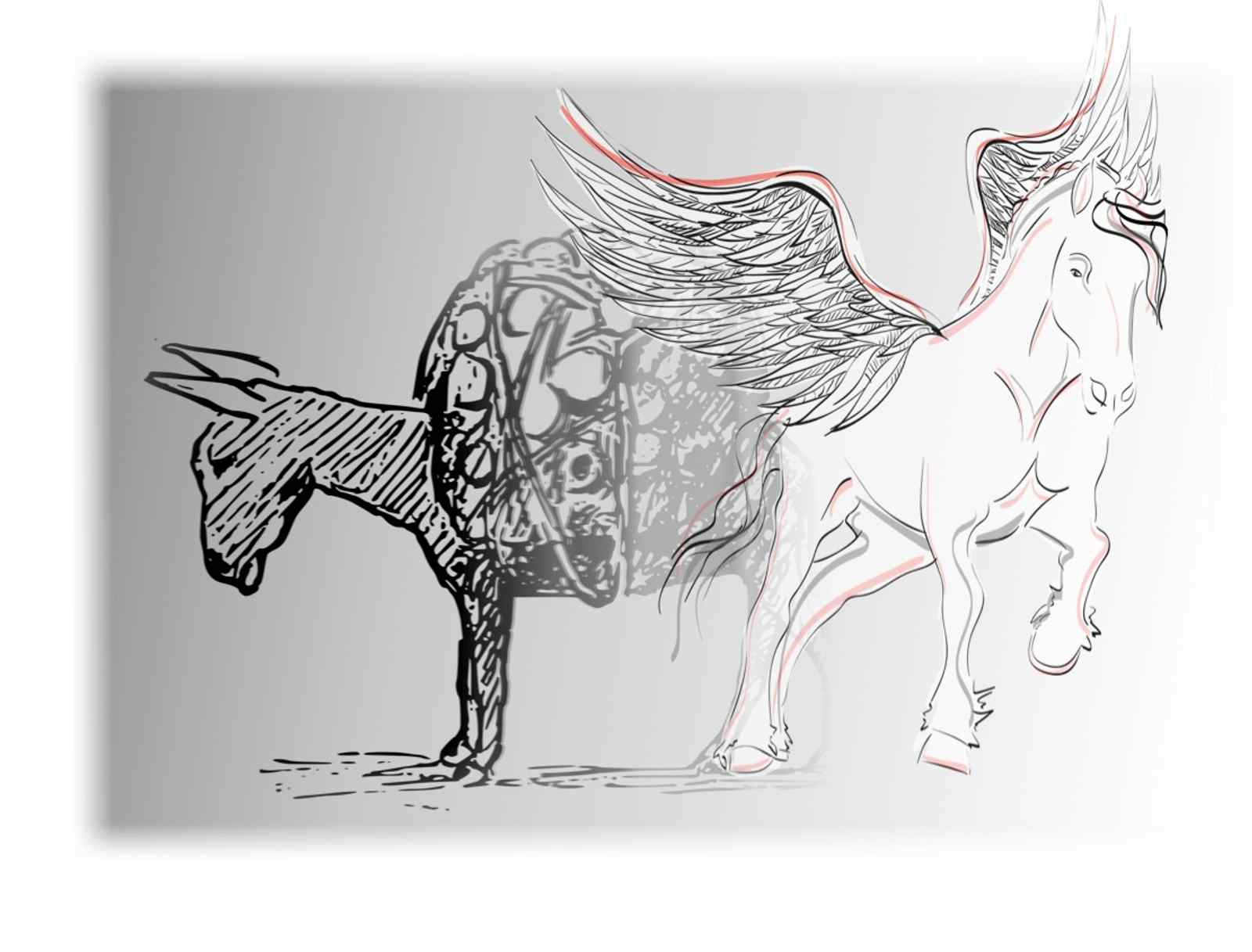But What about the "What-Abouts?"
Have you heard this?
“But what about before the Big Bang?”
“What about life coming from inorganic material?”
“What about missing links?”
“But what about consciousness?”
I’m sure you have. That inevitable deflection intended to stop epistemology in its tracks. The big questions someone is sure you can’t answer which is proof that your unbelief is unfounded.
Would you believe it was “what-abouts” that brought me out of belief and into rational thinking? I was raised evangelical, and stayed steadfastly there until early in the millennium. In my faith, I was determined to have an answer to all unbelievers’ questions. It wasn’t a burden; it was my duty! I taught Sunday school, ministered in nursing homes. I studied scripture isagogically, categorically, and exegetically. I married a man who went on to be a pastor. I was as devout a believer as you could find. And it was a Bible science book that convinced me otherwise.
I had the book, The Genesis Flood, which impressed me to no end. To further my desire to have an answer for every question, I read and reread the difficult science presented in that book. It seemed sound and irrefutable. And I was going to go on the internet and back that science up.
But that didn’t happen; rather, it fell apart, because I studied nonreligious sites and papers, too. Every detail I hoped to whip out for those atheistic “what-abouts” was explained or disproven.
Faith didn’t disappear overnight. It took almost a year after that to experience the rush of release that came with finally letting go of that burden. But I took on another one instead, because I still suffered from “what-about-osis.” Now I had to find those other answers. I had to be prepared to defend my unbelief. YouTube became my friend and rationalism my soapbox. Until one day...
Something triggered a memory from when my former husband and I had a little church in Flippin, Arkansas. A very unusual and disturbed visitor from way back when left a memory pebble buried in my shoe in 1996 that resurfaced 21 years later. She left a “what-about” bomb without even knowing it.
One morning we found an emaciated, scared, incoherent waif crouched on our back porch. In minutes it was obvious she had severe psychological issues. It took three days to convince Linda it was safe to sleep in our guest room, a week to have social services find out her background, and a month to become convinced that she was: “of the devil” (my mother-in-law), “dangerous” (congregants), “not human” (ex), or just severely emotionally damaged (me). It’s a long story; too long here to convince readers that the things that happened were super creepy. Let’s just say that it was “what about” – Linda’s precognition, eerie secret knowledge of people she didn’t know, and sight, feeling and hearing of things no one else experienced – that had my mother-in-law insisting we run her off the premises 30 days later.
So in 2017 I called into the Atheist Experience* to ask about this last what-about. No way I thought Linda was “demonic” or that her behavior was attributable to long-gone spiritual beliefs. But what about it? How could she know things about my husband that he never mentioned and I didn’t even know about? How could another cogent, intelligent man hear her speak in a familiar man’s voice he recognized from his past? There are no gods and no devils, so how does something like that come about?
Matt Dillahunty gave some explanations, but not all. And he was fine with that. Sometimes we don’t have enough information, and our preconceptions get in the way, he said. Sometimes we can’t make a determination due to lack of evidence, he added. It’s okay to not know. With that, the last of my what-about-osis fell away. I don’t need to know how abiogenesis occurred, or what was before the Big Bang. It’s okay to not know – now or yet. And I’m finally fine with that.
* https://www.youtube.com/watch?v=iX6ehcbwDLQ Starts around 1:29:40

